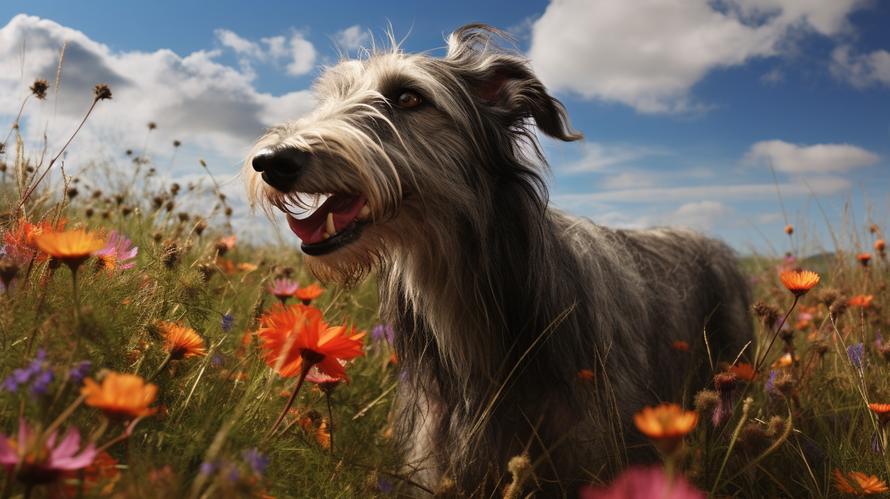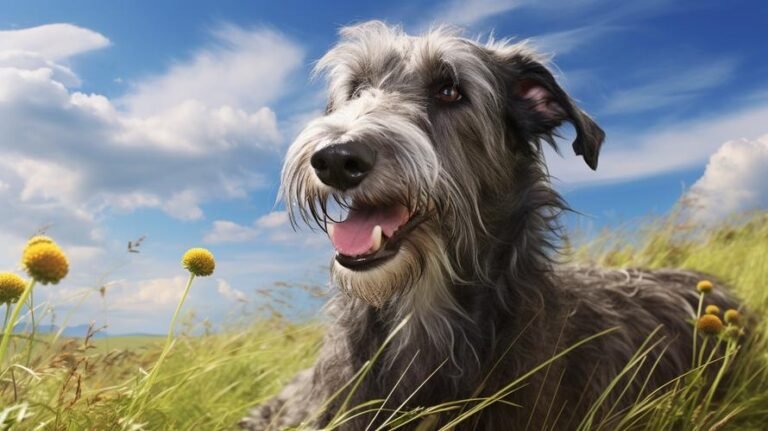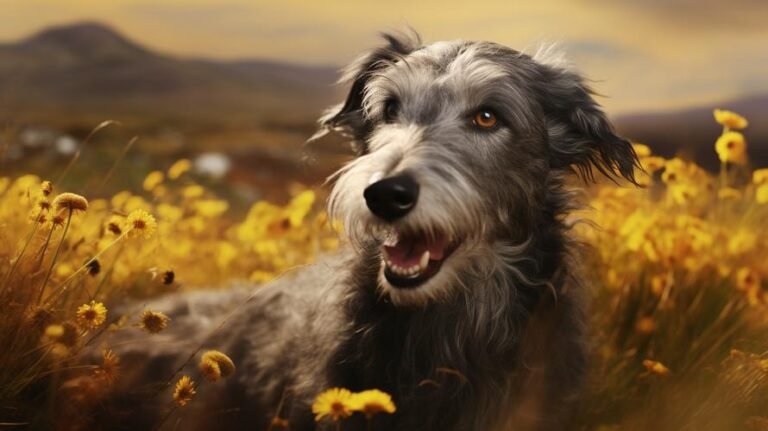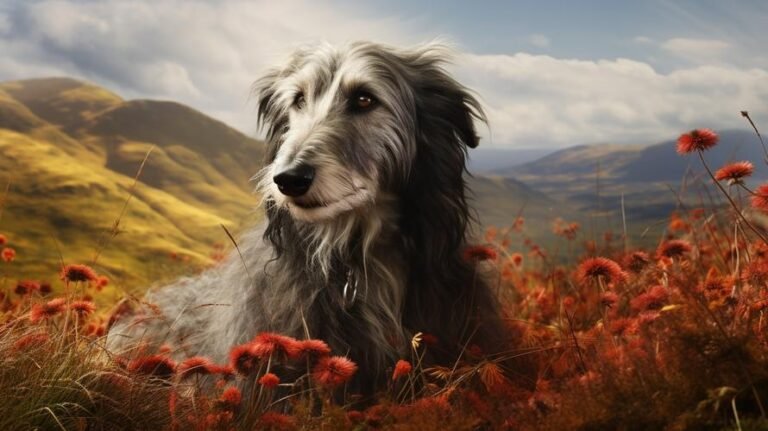Did you know that the noble Scottish Deerhound, recognized for its wiry coat and dignified demeanor, was once the exclusive privilege of Scottish nobility? No one ranking below an earl could even own one! Yes, these dogs were more than mere pets; they were a status symbol. Right up there with shiny crowns and plush robes. This dog breed’s rich historical lineage speaks volumes about what your beloved pooch might expect – or rather, should expect – out of its feeding bowl. The question that is probably bouncing around in your mind right now is, “Does my Scottish Deerhound need special dog food?” A question we will gladly answer today by leaning on a tight weave of fact, reason, and scientific evidence.
You do not need a royal decree to understand the dietary needs of your Scottish Deerhound; you just need the right information. Let’s journey together into a realm of kibble, nutrients, and breed-specific dietary consideration, help your Deerhound live a healthy, nourishing life without you resorting to hiring a royal chef.
In that spirit, the straight answer to whether your Scottish Deerhound needs special dog food is, well, a ‘deerhound-ed’ yes. This need mainly arises because this breed has a unique physique, metabolism, and a propensity towards certain health conditions. But before you scramble off to place an order for boutique, hyper-specialized Deerhound kibble, let’s explore what ‘special’ means in this context.
The Scottish Deerhound isn’t an average-sized pet. Standing up to 32 inches tall and weighing between 75-110 pounds, this hound is a sight to behold. Industrial levels of energy burn inside this gentle giant, which primarily requires that all-important nutrient – protein. A diet nourishing enough to maintain their muscle tone and provide boundless energy for their daily adventures is non-negotiable.
The Association of American Feed Control Officials (AAFCO) suggests that dog food for large breeds like your Deerhound contain at least 20% protein. High-quality meat such as chicken, fish, beef, or even deer meet this requirement perfectly. But remember, animal protein is better than plant protein because dogs are primarily carnivores. So, make sure that protein source comes from real meat, not some unrecognizable concoction in the depths of the ingredients list.
And now let’s talk about another key nutrient in your dog’s diet—fat. Despite getting a bad rap, dietary fat is crucial for your Deerhound. Not only does it provide most of the energy they need for their ‘deer’-like sprinting, but it also helps support a healthy coat, skin, and brain. Look for dog foods containing about 5-8% fat for your Deerhound’s diet.
Calcium and phosphorus are essential nutrients to support the bone health of your Scottish Deerhound. Their dog food should ideally contain a balanced calcium to phosphorus ratio of anywhere between 1:1 and 1.3:1.
Another area to ‘hound’ around is the breed’s specific health needs. Scottish Deerhounds are prone to certain conditions such as heart disease, hypothyroidism, and bloat. Each of these conditions has dietary considerations, which further cement the need for ‘special’ dog food.
A diet low in sodium is advised for heart disease, while supplementation with L-carnitine and taurine (amino acids responsible for heart health) can be helpful. In cases of hypothyroidism, a balanced diet without unnecessary fillers is important. And to avoid bloat, split their meals into smaller portions instead of one big meal.
While no commercial dog food brand carries a line explicitly developed for Scottish Deerhounds, you can certainly find high-quality, large-breed dog food brands that meet these requirements. Brands like Orijen, Royal Canin, and Eagle Pack have large breed-specific options that consider these dietary needs.
Does this mean you need to go ‘hunting’ for the most expensive dog food on the shelf? Not necessarily. The definition of ‘special’ in the context of your Deerhound’s food doesn’t mean prohibitively expensive or elusive. It means food that considers the dog’s size, nutrients, and health conditions.
At this point, you might ponder the idea of cooking for your pet – and that’s good. With your vet’s guidance, you can indeed create healthy, balanced meals right at home. Remember, though, any change in diet should be gradual to avoid digestive upset.
In summary, while your Scottish Deerhound does need special consideration when it comes to dog food, it doesn’t mean you have to go overboard. Understanding your hound, their unique needs, and how best to meet them makes you more of a loyal friend than any earl from ancient history. Don’t you agree?
Your dog’s diet can be simple, effective, intelligent, and yes, a little special – just like your Scottish Deerhound. Now isn’t that ‘deer’ to your heart? After all, ensuring our tail-wagging friends stay happy, healthy, and with us for many years is worth a little ‘special’ consideration.



